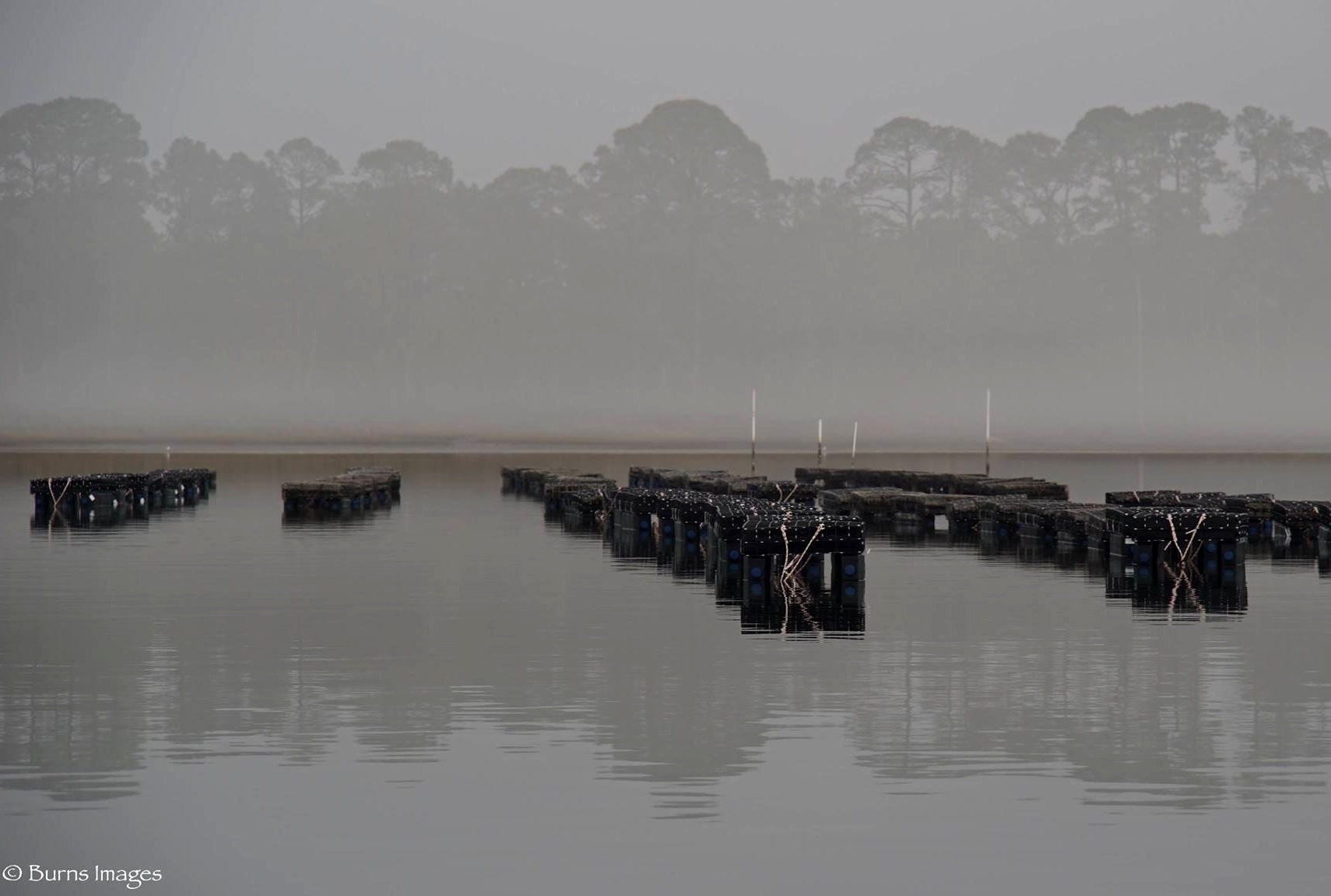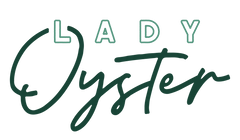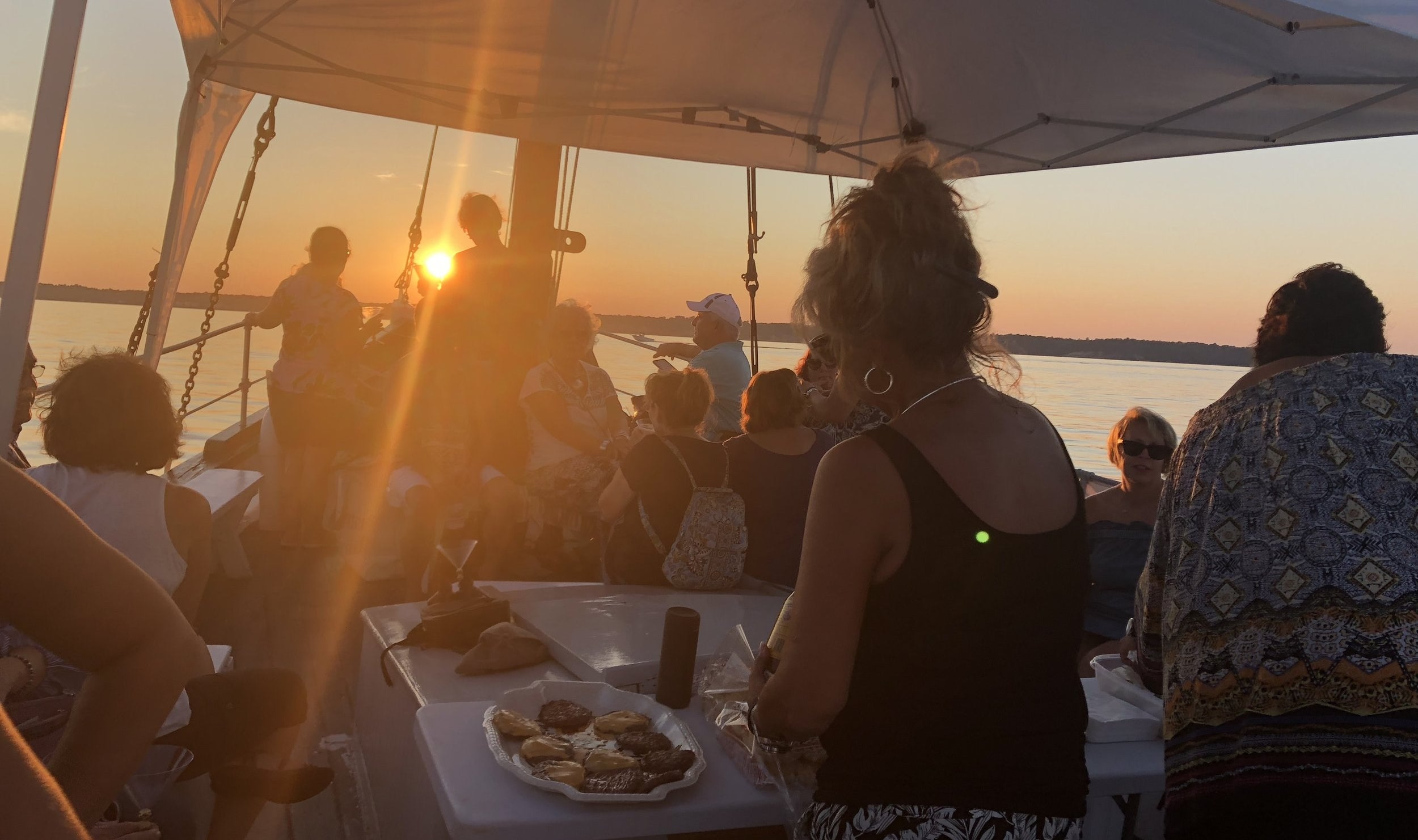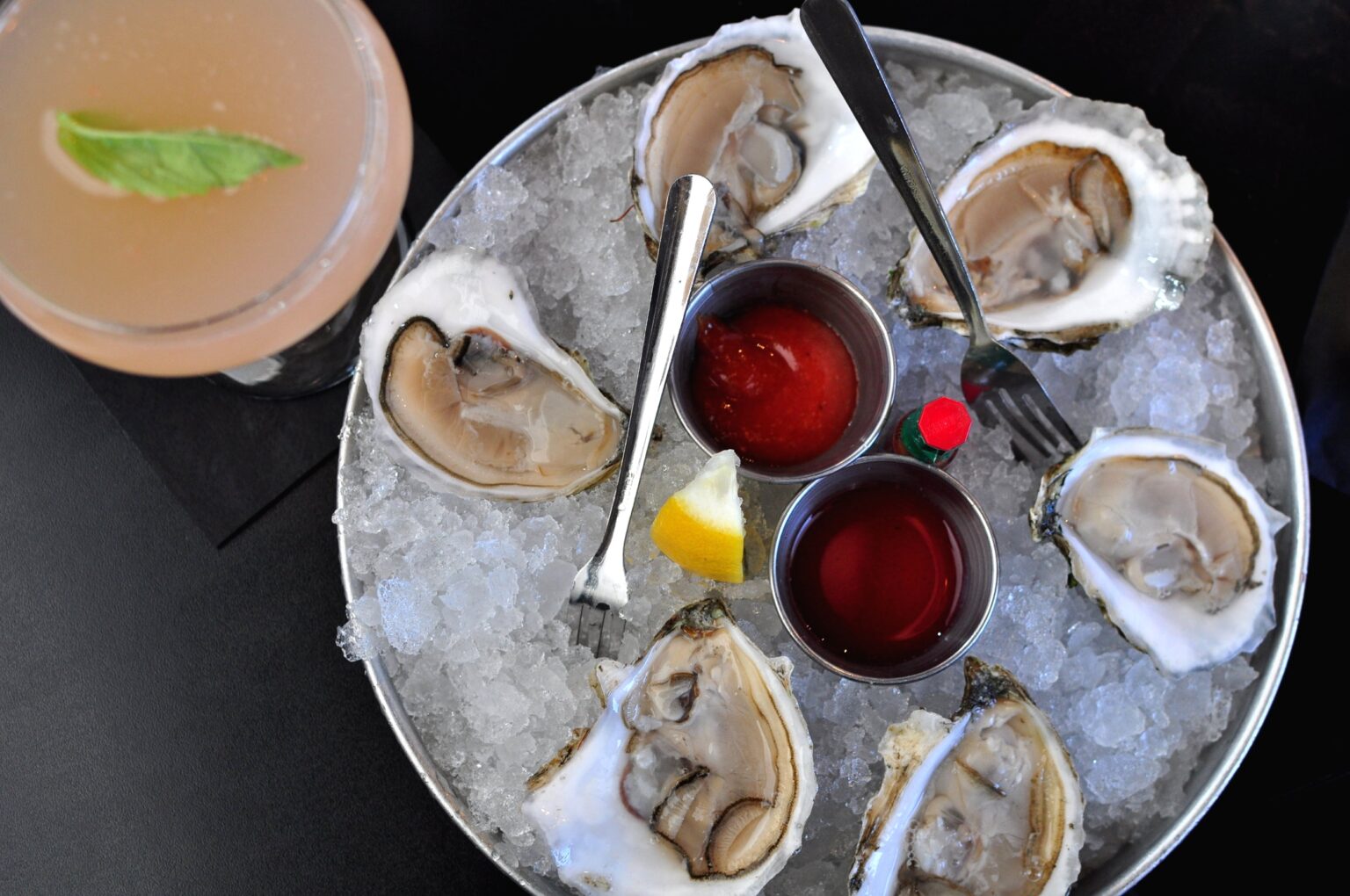Owning the Process: The Story of Oyster Boss

I was scheduled to speak with Jeff Tilley of Oyster Boss one November morning but when I rang, it went straight to voicemail. A few minutes later Jeff called me back with quite the story. He had no cell service on his 40-mile daily commute through Apalachicola National Forest, and stumbled across a stranded motorist on the side of the road in need of help. On an isolated highway with no cell range, you’re out of luck unless a generous passerby stops to give you a ride. Sure enough, Jeff was one of those people to offer a helping hand.
The Oyster Boss logo
I found Oyster Boss through outreach from Nicolette Mariano, Oyster Boss’ South Florida Regional Manager. I am very thrilled to say that not only do I have Jeff’s perspective, but will later feature Nicolette as a rising woman in the South Florida oyster industry.
Another important figure in this is Reid Tilley, Jeff’s 23-year-old son, who set Oyster Boss in motion. I am so delighted to share this story from the eyes of his Father, Jeff, who gives us an honest narrative of their Father-Son journey in building a business together. It’s full of passion, heritage, hustle, and a desire to leave the world better for the next generation.
Without further ado, here is the story of Oyster Boss.
Virginia: Jeff, how did this all start? Can you share your story and Reid’s?
Jeff: Yes. Firstly, I am not a native Floridian – I grew up in Kentucky, and I have a deep appreciation for connectivity to our land and waters, and knowing how important it is to have that. A lot of kids in today’s world, especially those who are growing up in an urban environment, think food comes from the grocery store. Of course, we know that the grocery store is a part of the conduit, but now these youngsters don’t have any idea of the energy and intelligence required to get food to the table.

Reid and Jeff of Oyster Boss.
I spent my entire career in the contract sales industry, specifically electronic equipment and systems – so when my son was set to enroll in the local community college to become a fireman, his mom and I were in favor of that. I told him it was a great, noble occupation… Well, he spent two weeks in that program at Tallahassee Community College and then called me one day and asked me if I was aware of the aquaculture program there. I said yes, and he told me that he was actually very interested in that.
Lickety-split, he was out of the fire protection program and rolled up into the aquaculture program. I sat through many of the classes with him as well out of my own interest.
When he graduated, he was awarded a lease of submerged water. The state of Florida manages this. They survey certain waters and allow them to be leased for aquaculture. He was awarded the lease and got involved with the process of setting it up and getting ready to stock it with oyster seed. So that’s how it all started.
I watched his development rather closely as he began to stand on his own two feet. And by the way, he’s the biggest “countryman” in Florida. I don’t know how this happened – I grew up playing golf, tennis, and quail hunting… and he much chose a different path. Reid always wanted to be in the woods or on the water and I couldn’t stop him from doing that. He is completely in his element on the water… That kid is all in.

Reid, the Founder of Oyster Boss. Source: Burns Images.
Eventually, I laid aside my own pursuits and decided to invest my time into the things that he wanted to do.
Virginia: What was your philosophy going into this business?
Jeff: I know enough about contract sales that you’ve got to own the process. I had a long talk with him and told him, “You’re probably going to have a good career with a beautiful product, and you’ll harvest it and sell it for a very comfortable living for yourself. However, you need to be warned that there will be a day when you show up at the fish house and their cooler is for some reason full, and you won’t be selling that day. You won’t always be in control. So we need to develop a system where we can be more in control.”

Oyster Boss oysters. Source: Oyster Boss Facebook
I proposed a system where he does everything necessary on the water, and I’ll do everything necessary on the land. We’ll build a brand, online presence, relationships with restaurants and chefs, etc., and we won’t be as beholden to others.
Today, I’m finding valuable people like Nicolette, and it’s all coming together. We had our first harvest last year – about half a million oysters, and if mother nature cooperates, we are hoping to harvest 4 million this year.

Oyster tumbling. Source: Oyster Boss.
V: Reid - he seemed so confident in his career choice.
Jeff: Yes, many kids migrate to urban areas that are more sustainable for them. For the kids who stay, their choices are more limited. Reid believes that the aquaculture industry is a really great opportunity for himself. I refer to him as the “new face” in Florida for the commercial seafood industry.
I personally feel very connected with that industry, by the way. I run a few Facebook groups that consist of about 18-20,000 members. My love of coastal Florida and the salty lifestyle is what’s highlighted in those groups. I used to wonder, is there a business plan that incorporates all of the synergy in social media? Truthfully, I couldn’t put my finger on it but then one day I woke up in the oyster business, and I found out that literally all I had to do to market my product was to get on the groups and tap a few words. It’s been crazy. That connectivity is what people are missing, but it also represents a disconnect to a lot of heritage.
I’m using these groups to help an industry that is right now flat on its back. It’s because of regulatory issues, water quality, and market issues where seafood can be grown very cheaply in Asia, shipped, and packaged. It may look delicious in the supermarket, but every time it is purchased by a consumer, it’s food that wasn’t harvested and processed in the States.
V: So your online presence is supporting growth for Oyster Boss. Last year you expanded your team with Nicolette. What does she bring to the business?
Jeff: I’m normally not good at hiring people! But Nicolette has the youth, energy, enthusiasm, and education. I’m so pleased to have her on board. She’ll be heading up what we will be doing in South Florida. I’ve long suspected that South Florida is going to be a very large market for us in the future.
We currently have six leases in Alligator Harbor, Florida. Each lease is an acre and a half, and the goal is to have 10 – 15 acres under control. What the business plan calls for is to march this thing to 750-800,000 oysters per year per lease, if mother nature cooperates. We just have to continue to improve our processes.

Jeff and Nicolette of Oyster Boss. Source: Oyster Boss Facebook.
V: Can you describe the issues you face in differentiating the value of a boutique oyster in South Florida?
Jeff: In the Apalachicola area, there is a large consumption culture, but Apalachicola has such a huge oyster distribution industry that oysters actually come from all over to country to be processed and distributed out. There are problems with that, because if I go to a restaurant and ask where the oysters come from, they will say that the oysters came from Apalachicola, which implies that they came from the Bay right out of the water, but they didn’t. The Bay’s 110 million oysters per year went to zero. So I figured out that I am asking the wrong question when I ask where they come from. The correct question is to ask where they were grown. That’s when the server has to pause and run back to the kitchen.
In Florida, it’s often difficult for a grower to manage cost expectations. The steep production and a lot of oysters here locally makes it difficult for a grower to manage cost. If we allow our product to be comingled with that mentality - a 60-pound sack of wild oysters from Texas (which is going to contain a lot of rocks in that bag) - then we cannot show the value of our product.
To overcome this, we don’t talk about oysters by the pound. We talk about oysters by the piece. Every oyster we sell is guaranteed and if restaurants find anything in that box they don’t like, we will replace it with no questions asked. This guarantees a top-notch, boutique product. It’s a completely different mentality.

Oyster Boss oysters. Source: Burns Images.
Our other difference? No one is going to out-hustle us. We will make space for ourselves and stay in front of the industry. We have a beautiful product that’s consistent in size, and we guarantee it. Period. That is what will make the whole thing work for us.
For 35 years I was pounding on doors, begging for customers to let me in, saying “hey, I have something you need,” and now all of the sudden I’m helping my son where people are pounding on my door! We’re going to demonstrate the product to the waiting tastebuds, and prove that it is has merits over the ones they buy in 60 pound bushels.
V: Being on the Gulf in Florida, did you have any challenges from recent hurricane?
Jeff: Fortunately, there wasn’t any aquaculture growing at ground zero. We did get a 15-18 foot water surge.
We purchase our floating cages, Flow-N-Grow, from Ketcham in Massachusetts, and once we were confident of the storm’s path, my son announced that the crews were going to sink them. It’s a very large task to get it all back up off the bottom and despite the heavy seas, the guys went out and sunk them all. We lost maybe 60,000 oysters, which was minimal. We have about 400 floating cages and the guys did a fabulous job in saving the 2019 crop. Several of the men working for us are dedicated former commercial oyster men from Apalachicola, and I’m really pleased we’ve been able to have them.
There were a lot of growers who did not sink and when the storm surge came through, all their gear wound up in the woods on the north side of Highway 98 and it was devastating, just terrible. I told Nicolette that I want to develop a best practice guide to help others in the future.
Another tip: Tag your gear.

The Oyster Boss Team. Source: Oyster Boss Facebook.
V: What do you personally love about the industry?
Jeff: I really appreciate the commercial fishing heritage in the state of Florida, which has been withering. After the constitutional amendment in 1994 that banned the use of commercial fishing nets, it’s now hook and line or done by cast nets. You need to basically be a linebacker to cast a 12-14 foot net to get enough fish. I deal with this almost daily seeing the families that have suffered, and the outward migration that it has caused because of the lack of economic opportunity. Condo development and Asian protein have also contributed to this.
I have a passion for the revival in starting the march back. The oyster industry – it’s not likely that Asian producers will ever be able to supplant our US oysters. And really, I think this is so much fun. I’m loving it and it gives us a lot of cred in the industry with local fishers as well. I’m putting a lot of these guys to work, too. They’re doing something they would much rather be doing.
The second piece of it is the personal background in value-added, boutique products. I’m perfectly at home. Now I get to participate in the industry and not only that, but with my own son. He can’t wait to get out of bed in the morning and get to work.
V: Is there anything else you feel will contribute to the Southern Coast revival?
Jeff: Water quality. This ties into the reason why I think Nicolette has such a great future with me and with the industry. Apalachicola Bay is emblematic of water quality issues. A part of that reason is the ecology of the river itself. All of Florida is suffering. The Red Tide this year, there’s lots that has hurt the marine environment and the overall population.

The Oyster Boss Lease. Source: Oyster Boss
Long and short – I have a philosophy that it was my generation that screwed this up. The least we can do is get others into a position where if they apply the right energy, they may be able to turn it back.
I’ll summarize that with a story. As my own Dad, a life-long arborist and gardener was aging, he stopped planting trees a few years before he passed. I asked him why he stopped and he said, “Jeff, maybe it’s because I feel like I won’t be able to enjoy their shade in the future.” His comments always implied a number of things without saying it - he was good at that. But at that moment, I decided that I was never going to quit planting trees, ever. I’m planting trees now and for the future, not just for my benefit. I’m planting them for those behind me. Let’s get them into a position to fix things we broke. Nicolette has the intelligence, communication skills, passion – I told her that I don’t care which politicians you make miserable. Let’s use social media to do it. Somehow, we have to craft a big enough tent for all of us to get under it, and we’ll all have to leave our weapons at the door.
Wise words for us all to live by, Jeff! Thank you for sharing the Oyster Boss story. You can read more about Oyster Boss on their website, and follow them on Instagram and Facebook.



